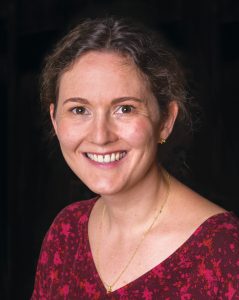- Sponsored Content

What is ADHD/ADD?
ADHD/ADD stands for Attention Deficit (and Hyperactivity) Disorder, which means that an affected person shows significant inattentiveness and possibly hyperactive or impulsive behaviour. I always stress that it’s important to note that hyperactivity, impulsivity, and inattention are observed in many children and are part of normal child development. Only when this behaviour is impairing a child’s functions should we consider testing for ADHD.
What are the signs?
Signs of inattention include: poor listening skills, frequent misplacing and losing of belongings, diminished attention span, difficulties in planning and finishing tasks. Signs of hyperactivity and impulsivity include: fidgeting, an inability to sit still, difficulties in waiting for a turn, frequently interrupting others.
When does ADHD tend to present itself?
ADHD symptoms are aggravated under stress, hence the typical behaviour issues most often present themselves in phases of transition. This may be when a child joins primary school at 6-7 years old or around the teenage years of 12-14.
Is ADHD more common in boys or girls?
Around 5-7% of all children are affected by AD(H)D. While ADHD is more common in boys, ADD is more common in girls.
Can an ADHD child still access school and academia?
Having ADHD will probably mean that the child will rely upon specific and tailored support to reach their social, academic and professional potential. Each child will have a different journey with ADHD. The variety of experience depends upon;
- the extent of the symptoms
- the availability of support
- the response to coaching and treatment given
- the natural progression of the disorder (which may differ greatly)
Remember that each child will have a different path and although there are commonalities, your child’s ADHD may present differently to another’s. Most children with ADHD attend a mainstream school and some are very academically successful.
How does a professional assessment identify ADHD?
I firstly conduct a thorough medical examination including a patient’s medical history and some diagnostics (like blood tests). Then we carry out a detailed developmental assessment.This usually consists of various cognitive tests such as solving logical problems, completing memory tasks, testing fine motor skills, and other cognition puzzles; behaviour observation in different situations; and detailed questionnaires.
Do all children with ADHD need medication?
Not every child needs the same support and treatment and certainly not every child needs medication.
What advice would you give to parents who suspect their child has ADHD?
When a child struggles because of behaviour it’s essential to get them the support they need. I’d advise any parent that suspects their child has ADHD to seek the advice of a qualified professional. The sooner we can identify what is behind the behaviour, the sooner we can take the necessary steps to offer support.
 Dr Nicole Plesko-Altermatt is a Swiss trained children’s doctor who can identify ADHD/ADD and other neuro-diverse conditions. She also speaks French and German. Contact our Star Vista clinic at osler-health.com/clinics/star-vista for an appointment.
Dr Nicole Plesko-Altermatt is a Swiss trained children’s doctor who can identify ADHD/ADD and other neuro-diverse conditions. She also speaks French and German. Contact our Star Vista clinic at osler-health.com/clinics/star-vista for an appointment.









